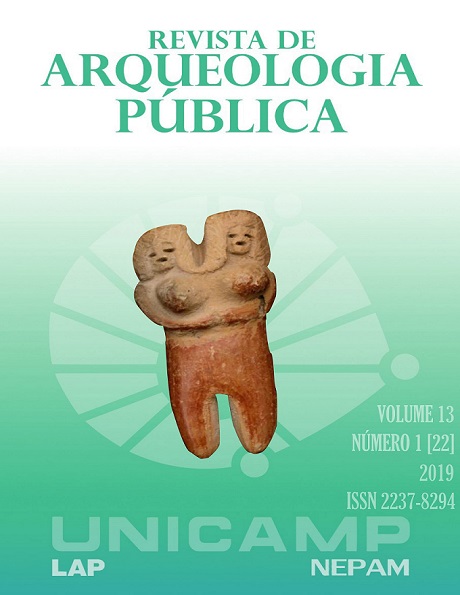Abstract
My initial reading, almost three decades ago (as a graduate student), of Leacock’s introduction was quite profound. It was the first time I read a succinct outline of how gender inequality might have developed and was equally offered a viable hypothesis of what might have also led to patriarchy. This is particularly significant since, most probably, for the majority of our species’ history, that is, for almost two hundred thousands years, a greater form of gender (and social) equality had existed. It was Engel’s work through Leacock’s introduction that enabled me to appreciate how when capital accumulation appeared, particularly under state formation, women faired worse than men and seem to have become second class citizens.However, the questions still remained: How did this shift occur? What were the mechanism that made normalized one gender over another, and made this a lasting legacy until our days? And what were the roles of child-birth, and perhaps warring itself, in this process, since both activity seemed to be the most gender-specific ones in the literature? Meanwhile, no actual hypothesis was proposed in Leacock’s introduction of how same-sex desire might have entered the picture. Although it was clear from the analysis that monogamous heterosexual arrangements were complicit with capital accumulation, as well as, with gender hierarchy, patriarchy and sexual discrimination.
References
Anzaldúa, Gloria. (1987). Borderlands/La Frontera: The New Mestiza. San Francisco: Aunt Lute Books.
Baldwin, James. 1993(1963). The Fire Next Time. New York City: Vintage International.
Benavides, O. Hugo. (2002). “The Representation of Guayaquil’s Sexual Past: Historicizing the Enchaquirados,” Journal of Latin American and Caribbean Anthropology 7(1):68-103.
Benavides, O. Hugo. (2017). Transgéneros en la costa ecuatoriana: una historia del presente evanescente, Andrés Guitérrez Usillos (editor), en: Trans-diversidad de identidades y roles de género, Museo de América, Madrid.
Butler, Judith. (2006). Gender Trouble: Feminism and the Subversion of Identity. New York City: Routledge Press.
Engels, Friedrich. 1972 (1884). The Origin of the Family, Private Property and the State. New York City: International Publishers, Inc.
Foucault, M. 1998 (1971). Nietzsche, Genealogy and History. In Aesthetics, Method and Epistemology: Essential Works of Foucault Volume 2, edited by J. Faubion, 369–392. New York: The New Press.
Foucault, Michel. (1977). A Preface to Transgression. Language, Counter-Memory, Practice: Selected Essays and Interviews. D. Bouchard (Editor). Ithaca: Cornell University Press.
Gailey, Christine. (1987). From Kinship to Kingship: Gender Hierarchy and State Formation in the Tongan Islands. Austin: University of Texas Press.
Halberstam, Jack. (2011). The Queer Art of Failure. Durham: Duke University Press.
Hall, S. (1997). The Local and the Global: Globalization and Ethnicity. In: Culture, Globalization and the World-System: Contemporary Conditions for the Representation of Identity, edited by A. King, 19–39. Minneapolis: University of Minnesota Press.
Hall, S. (1997). Old and New Identities, Old and New Ethnicities. In: Culture, Globalization and the World-System: Contemporary Conditions for the Representation of Identity, edited by A. King, 41–68. Minneapolis: University of Minnesota Press.
Hogbin, Ian. 2013 (1970). The Island of Menstruating Men: Religions in Wogeo, New Guinea. New York City: Waveland Press.
Hooks, Bell. (1994). Teaching to Transgress: Education as the Practice of Freedom. New York City: Routledge Press.
Leacock, Eleaonor (1972). The Origin of the Family, Private Property and the State. New York City: International Publishers, Inc.
Morgan, Henry Louis. 1877 (1985). Ancient Society. Tucson: University of Arizona Press.
Muller, Viana. (1977). The Formation of the State and the Oppression of Women: Some Theoretical Considerations and A Case Study in England and Wales. Radical Review of Political Economics 9 (3): 7-21.
Muller, Viana. (1985). Origins of Class and Gender Hierarchy in Northwest Europe. Dialectical Anthropology 10 (1/2): 93-105.
Murra, John. (1956). The Economic Organization of the Inca State. Chicago: University of Chicago Press.
Murra, John. (1962). Cloth and its Functions in the Inca State. American Anthropologist 64 (4): 710-728
Newton, Esther. (2000). Margaret Mead made me Gay: Personal Essays, Public Ideas. Durham: Duke University Press.
Ortner, Sherry. (1978). The Virgin and the State. Feminist Studies 4 (3): 19-35.
Patterson, Thomas. (1997). The Inca State: The Formation and Disintegration of a Pre-Capitalist State. New York City: Berg Publishers.
Preciado, Beatriz. (1990). Manifesto Contrasexual. Madrid: Anagrama.
Silverblatt, Irene. (1987). Moon, Sun and Witches: Gender Ideologies and Class in Inca and Colonial Peru. New Jersey: Princeton University Press.
Spivak, Gayatri. (1999). A Critique of Postcolonial Reason: Toward a History of the Vanishing Present. Cambridge, MA: Harvard University Press.
Ugalde, Maria Fernanda. (2019). Arqueologia bajo la lupa queer. Una apuesta por la multivocalidad. Revista de Arqueologia Publica – Universidade de Sao Paulo (forthcoming).
Ugalde, Maria Fernanda. (2017). De siamesas y matrimonios: Tras la simbología del género y la identidad sexual en la iconografía de las culturas precolombinas de la costa ecuatoriana. Andrés Guitérrez Usillos (Editor), en: Trans-diversidad de identidades y roles de género, Museo de América, Madrid.
Ugalde, Maria Fernanda and O. Hugo Benavides. (2018). Queer Histories and Identities on the Ecuadorian Coast: The Personal, the Political, and the Transnational (co-authored with María Fernanda Ugalde), Whatever: A Transdisciplinary Journal of Queer Theories and Studies 1(1): 157-182.
Weismantel, Mary. (2013). Towards a Transgender Archaeology: A Queer Rampage Through Prehistory. The Transgender Studies Reader 2: 319-334. New York City: Routledge.
A Revista Arqueologia Pública utiliza a licença do Creative Commons (CC), preservando assim, a integridade dos artigos em ambiente de acesso aberto.

